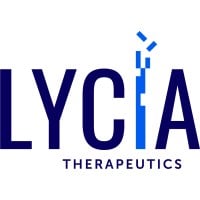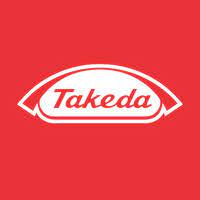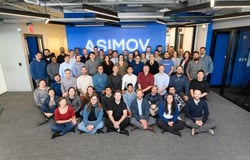Senior Research Associate II / Associate Scientist, Antibody Discovery & Engineering
Lycia Therapeutics, Inc. is a biotechnology company leveraging its lysosomal targeting chimera (LYTAC) platform from Founder and Chemistry Nobel Laureate 2022, Carolyn Bertozzi, to discover and develop first-in-class therapeutics that degrade extracellular and membrane-bound proteins. Lycia’s next generation degraders harness the cell’s endogenous lysosomal trafficking and degradation machinery with the potential to degrade targets previously considered to be intractable, across a spectrum of indications. After raising $105 million in capital in 2021, Lycia is advancing an internal pipeline of novel degraders and has entered a strategic collaboration with Eli Lilly to address key unmet medical needs. In May 2024, Lycia Therapeutics completed a $106.6 million series C financing to advance its pipeline of LYTAC extracellular protein degraders to the clinic. Lycia is headquartered in South San Francisco.
Visit https://lyciatx.com/ for more information.
The Role:
Lycia Therapeutics is seeking a team-oriented and talented individual to join our Antibody Engineering team in the Biologics group as a Senior Research Associate II or Associate Scientist. The job title will be commensurate with the amount of the applicant experience in the relevant area. In this role, you will leverage your expertise in antibody phage display technologies, biochemical assays, and high throughput bacterial protein expression to discover novel antibodies or engineer existing antibodies with desired properties.
The candidate will work closely with members of the Biologics and Biology groups as part of an innovative research organization to advance LYTACs to the clinic.
Key Responsibilities:
- Utilize phage display methodologies to discover novel antibodies or engineer existing antibodies to improve their functional activities.
- Use state-of-the-art phage display methods and high throughput ELISA-based and FACS-based screening.
- Perform high-throughput sequence analysis of potential candidates using sequence analysis software (e.g. Geneious Prime. AbYsis and R programming)
- Regularly communicate results to company supervisors, present updates during internal or joint team meetings with other companies.
- Multi-task, plan, execute, and deliver on projects which may be run in parallel.
- Identify and promptly troubleshoot technical issues.
- Maintain detailed lab records and perform electronic data management.
- Participate in reagent and lab supplies procurement and perform and/or oversee routine maintenance on instruments and equipment.
Requirements:
- For a Senior Research Associate II, a B.S. degree with 6+ years or an M.S. degree with 4+ years of experience and for an Associate Scientist, a B.S. with 8+ or an M.S. with 6+ years of industry experience in molecular biology, biochemistry, chemical engineering or a related field are required.
- Phage display experience is required
- Extensive experience in ELISA based screening is required
- Knowledge of molecular biology techniques and PCR is highly desired.
- Knowledge of DNA sequence analysis software is required.
- Experience with SPR/BLI is desired but not required.
- Excellent attention to detail, record keeping, and communication skills.
- Strong ability to work independently and manage work with minimal supervision.
We are an equal opportunity employer and value diversity at our company. We do not discriminate on the basis of race, religion, color, national origin, gender, sexual orientation, age, marital status, veteran status, or disability status
Top Skills
What We Do
Lycia is a Series B biotech company building upon the novel platform developed by academic founder Professor Carolyn Bertozzi at Stanford University to develop LYTAC (lysosomal targeting chimera) protein degraders that harness the cell’s lysosomal trafficking and degradation pathway to target both soluble and membrane-bound extracellular proteins. Applications of the LYTAC platform include: targeting challenging membrane proteins, clearing pathogenic immune complexes in circulation and depleting antibodies to specific antigens of interest. The platform can potentially deliver next-generation therapeutics to address a range of difficult-to-treat diseases, including cancer and autoimmune diseases.










